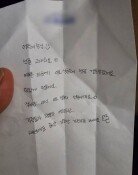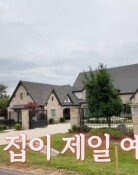Childcare regulations and the low birth rate
Childcare regulations and the low birth rate
Posted December. 29, 2010 11:16,
Ten days ago, parents nationwide were shocked over what happened at a daycare center in Incheon. A TV program showed scenes in which the mother of the centers director hit children under age 3 for wetting themselves and forcefully administered medicine by pressing on a childs chest with her foot. Parents were understandably enraged. The director and her mother were arrested, but this hardly calmed the rattled nerves of parents. With similar cases at other childcare facilities reported, the Health and Welfare Ministry seeks to prevent such incidents by banning corporal punishment, violent language and inadequate meals. Violations of these regulations will result in dismissal of teachers and shutdown of childcare facilities. For parents to send their young children to childcare facilities without worry, the government must first root out child abuse at such facilities.
It is difficult for the government to supervise the more than 37,000 daycare centers nationwide at all times. So a system that encourages whistle-blowing is needed. If necessary, surveillance TVs should be installed to allow parents to see their children through smartphones and the Internet.
Last year, childcare facilities took care of 1.17 million young children though the quota for such facilities was 1.48 million. This, however, does not mean they have room for more children. To send their children to state-run daycare centers known for good facilities and programs, parents must wait a long time. Certain parents even apply to these facilities even before their children are born. Private daycare centers cannot afford to invest in facilities and personnel due to the cap on childcare fees (172,000 to 383,000 won a month or 150 to 333 U.S. dollars a month), leading to poor childcare.
With growing calls to liberalize childcare fees, the ministry pledged leeway to certain childcare facilities in raising fees but failed to deliver due to the far-fetched claim the plan will worsen social disparity. Shortly after President Lee Myung-bak took office, the government said it would leave childcare services to the market through the liberalization of childcare fees, but the measure has yet to take effect.
The cap on daycare center fees, an ideology-driven regulation, increases the burden on parents for childcare. Those who look for high-quality daycare end up sending their children to kindergartens that teach children in English for 1.2 million (1,045 dollars) a month. These kindergartens are not subject to the fees cap. So the government must liberalize childcare fees to provide quality childcare that considers the financial abilities of parents.
Koreas fertility rate is the worlds lowest. The economic participation rate of Korean women is 49.4 percent, much lower than the Organization for Economic Cooperation and Development average of 61.4 percent. Samsung Economic Research Institute said that if women aged 30 to 34 are allowed to strike a balance between work and family, per capita gross national income will grow from 19,830 dollars to 22,626 dollars. A diversity of quality childcare services can change Korean society.







